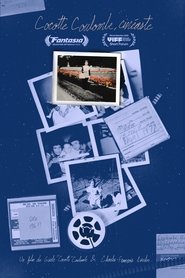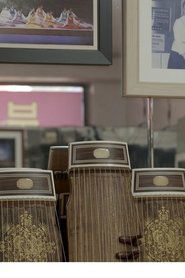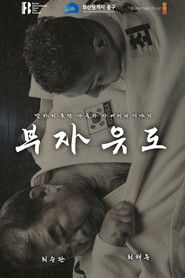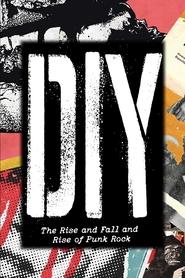New Documentary Movies on Tub Tv - Page 349
-
Beneath London: The Story of Alien War
2025
Journey back to London in 1993 - when two friends with a love of the Alien movies, a lot of ambition and a little bit of madness - set out to create the world's scariest walkthrough attraction with a little help from Sigourney Weaver. -
Zyndagi
2025
Zyndagi
2025
An experimental video collage piece that investigates the concept of self-destruction across genres, eras, and cultures. Features footage from Abbas Kiarostami's Taste of Cherry (1997), Satyajit Ray's Apur Sansar (1959), Charlie Chaplin's City Lights (1921), and Jeff Tremaine's Jackass 4.5 (2022), among others. -
The Impossibility of Showing What Should Never Have Happened
2025
The Impossibility of Showing What Should Never Have Happened examines the persistent impact of National Socialist child rearing ideals in post-war Germany. Specifically, it focuses on how the parenting book "The German Mother and Her First Child" by Johanna Haarer, infused with Nazi ideology, remained in publication, demonstrating the enduring influence of these ideas. The work investigates the continued existence of these harmful practices in a society supposedly moving beyond them. -
Cocotte Coulombe, Filmmaker
2025
After discovering more than 100 Super 8 reels in his great-aunt's basement, a young filmmaker reflects on the value of these movies and his family's legacy. -
The Consul of Nowhereland
2025
In The Consul of Nowhereland, there lives the self-appointed consul of a country that no longer exits: Yugoslavia. Teetering on the threshold between nostalgia and critical distance (and oscillating between digital film and Super 8), Alex Milić paints a portrait of a past that lives on in the heads of many. -
Path
2025
Path
2025
-
Prodigal Goes Back
2025
Prodigal Goes Back
2025
-
Mask
2025
Mask
2025
-
Restart
2025
Restart
2025
-
Smoking Blue
2025
Smoking Blue
2025
-
BUJA JUDO
2025
BUJA JUDO
2025
-
Listen Closely
2025
Listen Closely
2025
-
The Helmet
2025
The Helmet
2025
Upon his father's death, a voice explores feelings of loss and pain through an old American military helmet. A mystery is then unfolded on the border between North and South Korea. -
La mente en blanco
2025
-
DIY: The Rise and Fall and Rise of Punk
2025
D.I.Y. is an extrospective dissection of Pop-Punk; from the SoCal garages of the 80’s to the enduring impact the genre has had on music, fashion, and culture. -
La llei del caliquenyo
2025
In the aftermath of the war, when tobacco was black gold and smuggling was a means of survival, a small village in Les Garrigues became the epicenter of an underground revolution: the caliqueño. This is the story of the black market that arose around its illicit production and sale during the 20th century, facing persecution by the state. A clandestine route that emerged in Juneda, passing through Torregrossa, Montclar, Torres de Segre, the Valencian Country, and Andorra. A story of struggle and resistance that spread like fog. -
Hoy'ri
2025
Hoy'ri
2025
For the Licantanay, the original inhabitants of the Atacama Desert, Hoy'ri means Earth. In the world's driest desert, where stromatolites—the oldest fossil evidence of life on the planet—still exist, paleontologists dig into the past in search of answers about the evolution of life and the cosmos. The aridity of the desert preserves primitive conditions from 3.5 billion years ago, inspiring the search for answers that transcend time. -
Siksikakowan: The Blackfoot Man
2025
Amidst a sweeping Prairies backdrop, this luminous exploration of strength and vulnerability spans generations of Siksika men and boys as they learn to embrace the intricacies of self-discovery, identity and love in a world that often misunderstands and stigmatizes them. -
Widow Champion
2025
Widow Champion
2025
After Rhoda’s husband passed away, she was thrown off the land and endured seven tough years living in an outdoor market with her children. Many women in rural Kenya meet the same fate when deeply rooted patriarchal cultural traditions and discriminatory practices deny widows their rightful share.
 Netflix
Netflix
 Amazon Prime Video
Amazon Prime Video
 Apple iTunes
Apple iTunes
 Apple TV Plus
Apple TV Plus
 Disney Plus
Disney Plus
 Google Play Movies
Google Play Movies
 Paramount Plus
Paramount Plus
 Hulu
Hulu
 HBO Max
HBO Max
 YouTube
YouTube
 fuboTV
fuboTV
 Peacock
Peacock
 Peacock Premium
Peacock Premium
 Amazon Video
Amazon Video
 The Roku Channel
The Roku Channel
 AMC+
AMC+
 Kocowa
Kocowa
 Hoopla
Hoopla
 The CW
The CW
 Vudu
Vudu
 Starz
Starz
 Showtime
Showtime
 PBS
PBS
 Pantaflix
Pantaflix
 FXNow
FXNow
 Tubi TV
Tubi TV
 Kanopy
Kanopy
 Comedy Central
Comedy Central
 Crunchyroll
Crunchyroll
 Microsoft Store
Microsoft Store
 Redbox
Redbox
 Sun Nxt
Sun Nxt
 ABC
ABC
 DIRECTV
DIRECTV
 Crackle
Crackle
 Fandor
Fandor
 Plex
Plex


















